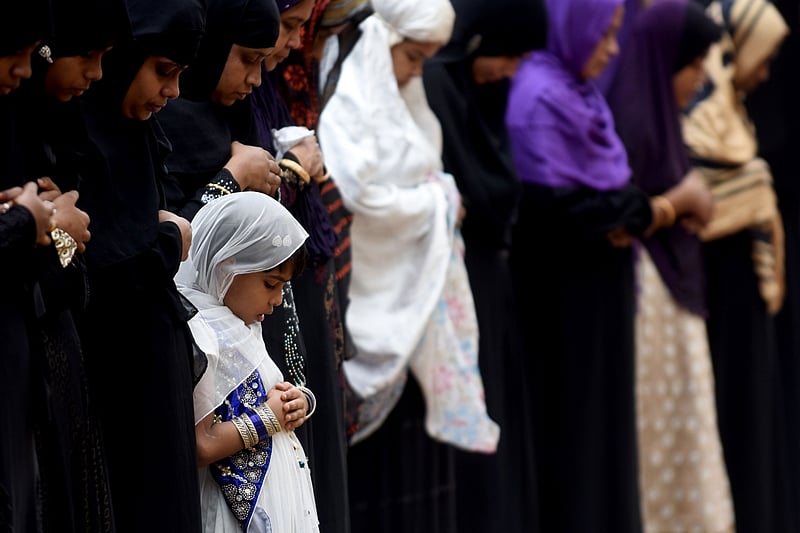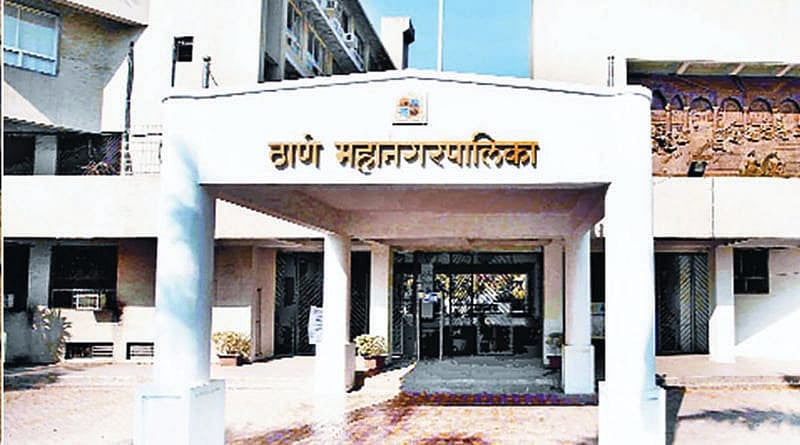There may have been fewer Iftar parties in India at the end of this year’s Ramazan fasting. If even those few suffered from a noticeable sense of restraint, it would probably have been because of the existential challenge that is subtly woven into the emerging patterns of life for India’s 190 million Muslims. No one expects any sudden or drastic change. But just as even some Bangladeshi Muslim immigrant women in Singapore have taken to wearing the hijab over their sarees, the demands of conformism may have some impact on Muslims in an India where the Bharatiya Janata Party alone commands 303 seats in parliament. The challenge is at two levels. One, the socio-economic condition of the majority of Indian Muslims – or “Muslim Indians”, as Syed Shahabuddin thought more appropriate — deserves attention. Two, they are confronted anew with the old need to prove that one can be both a Muslim and a loyal Indian.
Indian Muslims face what some scholars of Islam describe as a radically new and profound problem — namely how to live with others as equals. Apparently, this situation has never before arisen in the entire history of Islam. It is compounded in India by memories of Mughal, Lodi and other Muslim dynasties who comprised the “twelve-hundred years of ghulami” from which India must be freed (instead of the usual 200 years of British rule), according to Narendra Modi. Harshly put, the implication is that yesterday’s master must adjust to being today’s servant. India is still in the process of reconciling regional identities with a national polity that might evolve in a different direction under Narendra Modi and Amit Shah than it did under leaders who had inherited the liberal secular mantle of Jawaharlal Nehru. This critical aspect of an exercise that must balance diversity with unity, places an additional burden on Muslims. It is welcome therefore that a group of eminent Muslims hailed the emphasis that the Prime Minister laid in his first meeting with BJP MPs at the end of May on the need to earn the trust of the minorities, and sought to draw his “immediate attention” to the issues of education, healthcare and skill development.
Among the signatories were Fakhruddin Mohammad, chairman of Mesco Group, Niaz Farooqui from the Jamiat Ulama-i-Hind, and Kamal Faruqui, former chairman, Delhi Minorities Commission and member of All India Muslim Personal Law Board. Claiming that “education and healthcare, skill development and confidence-building measures” are three focused points deserving attention, they sought “adequate protection under (the) Constitution and the law of the land.” The letter-writers complimented the Prime Minister for “very pertinently” pinpointing “the problem of minorities.” He had referred to the poor being cheated and the minorities being deceived the same way instead of their education and health being in focus. “Minorities have been made to live in fear by those who believed in vote-bank politics. I expect from you in 2019 that you would be able to make a hole in that deception” the Prime Minister told BJP MPs. “We have to earn their trust.” This was acclaimed. “We share the belief with your honour that unless the poor and the marginalised are brought into the mainstream and their full capacities are utilised,” the letter-writers stressed, “this great dream of every Indian patriot will not come true.”
Mr Modi, in fact, reiterated the old Jana Sangh-BJP refrain that secularism is a sham, pseudo-secularism is the reality, and that Muslims are only fodder for vote bank politics. There may be some truth in the charge but it is just as true of the disadvantaged of all communities, especially of those who cannot claim the privilege of belonging to the dominant caste groups in the Hindi-speaking belt. Discrimination and exploitation are inherent in Indian life, and those without clout are discriminated against and exploited most easily. It is easy to say that economic uplift is the answer to both problems, but the tools of economic uplift – education and various forms of official help — are also subject to discrimination and exploitation.
According to the report, “Living Reality of Muslims in West Bengal”, nearly 80 per cent of rural Muslim households earn Rs 5,000 or less per month, while more than 38 per cent of them earn less than Rs 2,500. The 68.3 per cent Muslim literacy rate is 4 per cent below the average. Muslim representation in agriculture is an overwhelming 47 per cent, but a meagre 1.55 per cent is in school teaching and 1.54 per cent in the public sector. Both sides can be equally guilty in perpetuating inequity. West Bengal would certainly have boasted a higher level of Muslim literacy, for instance, if parents had not refused to send their sons to ordinary schools because of the orthodox injunction that the first and last sounds of the day have to be Quoranic.
As the Justice Rajindar Sachar Committee on the social, economic and educational status of Muslims reported a decade ago, a community that numbered a little over 27 per cent of West Bengal’s total population (as per the 2011 Census), accounted for an average of only about 3.4 per cent of government jobs. That has now gone up by about 2.3 percentage points which is regarded as a significant decadal improvement. But the larger uncertainty remains.
Muslims assume (fear?) that the National Democratic Alliance government will seek to introduce a uniform civil code and abolish Articles 370 and 35A for Jammu and Kashmir. But as a former Congress leader and central law minister, Veerappa Moily, once explained, such social integration would be “next to impossible” to implement because between 200 and 300 personal laws cover various communities. Amending Article 370 might mean having to amend Article 371A (for Nagaland) and Article 371G (for Mizoram). The entire process might also deal a blow to federalism since personal law would have to be removed from the Constitution’s concurrent list to give parliament exclusive legislative power.
Underlying such problems is the knotted and emotive question of identity. An Omar Abdullah has the confidence to declare in parliament that he is proud of being both a Muslim and an Indian but many are like Mian Mumtaz Daultana (1916-1995) of the Muslim League who admitted long before partition that “a Muslim in India did not really quite know whether he was basically a Muslim or an Indian.” If some are still not sure, others only too ready to make them feel unsure. It’s part of the cruel game of numbers to compel the few constantly to prove themselves for the satisfaction of the many. But at least the post Id-ul Fitr rhetoric in Kolkata confirmed that while Muslim leaders are sensitive to pitfalls ahead, Bengal’s chief minister, the feisty Mamata Banerjee, continues to stand beside them.
The writer is the author of several books and a regular media columnist.
- Sunanda K Datta-Ray




